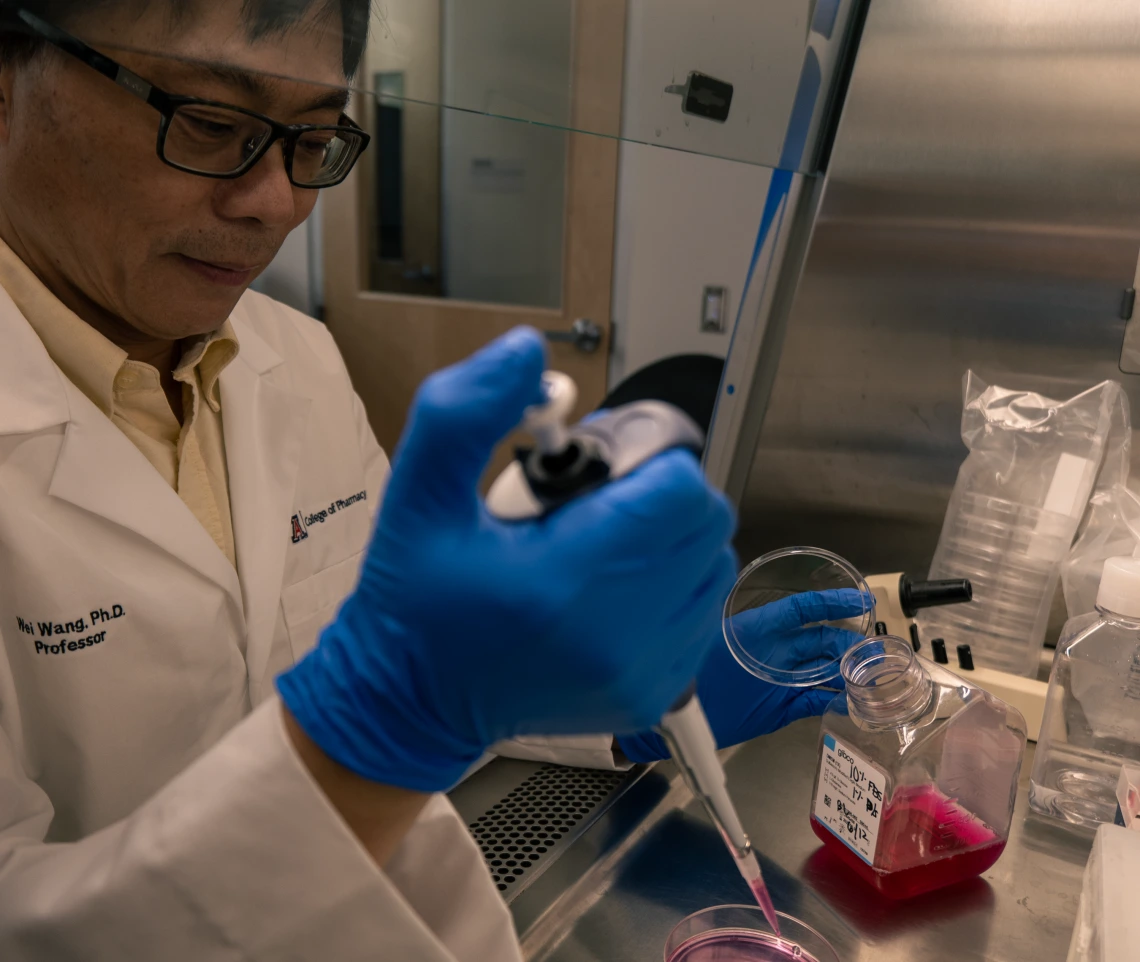University of Arizona Cancer Center researchers develop new way to target cancer cells
Using click-release proteolysis targeting chimeras, researchers have developed a new method of activating specific molecules to target cancer cells without harming healthy cells.

Researchers from the University of Arizona Cancer Center have identified a new method of activating specific molecules to target cancer cells while leaving healthy cells unharmed.
In their recent study, published in the Journal of the American Chemical Society, Wei Wang, PhD, and his team developed a new strategy called click-release proteolysis targeting chimeras, or crPROTACs, that allows for the activation and release of PROTACs only in cancer cells.Wei Wang, PhD, is a professor at the R. Ken Coit College of Pharmacy, co-director of Arizona Center for Drug Discovery, and member of the BIO5 Institute and UArizona Cancer Center.
“The studies open a new way to deliver anti-cancer drugs to cancer cells,” Wang said. “We are exploring the technology for the treatment of more challenging senescent cancer cells and other diseases.”
PROTACs are molecules that scientists designed to break down specific proteins in the body. They are now explored as a potential treatment for cancer; however, one of the challenges is that they can be harmful to healthy cells due to uncontrolled protein breakdown.
Wang’s research focuses on an existing metabolic pathway in the human system, the ubiquitin-proteasome pathway, that normally targets proteins for degradation and recycling. Wang’s strategy uses the pathway to specifically target cells at tumor sites, minimizing premature drug activation and unwanted side effects. The researchers found that the crPROTAC strategy successfully degraded proteins of interest in cancer cells.
“Unlike many other drug delivery strategies, this approach will be very precise in targeting just the tumor,” Wang said.
Wang’s approach stems from biorthogonal and click chemistry, which was originally developed by Carolyn Bertozzi, MS, PhD, for which she won the Nobel Prize in chemistry in 2022.
Read the full story on the University of Arizona Health Sciences Newsroom



